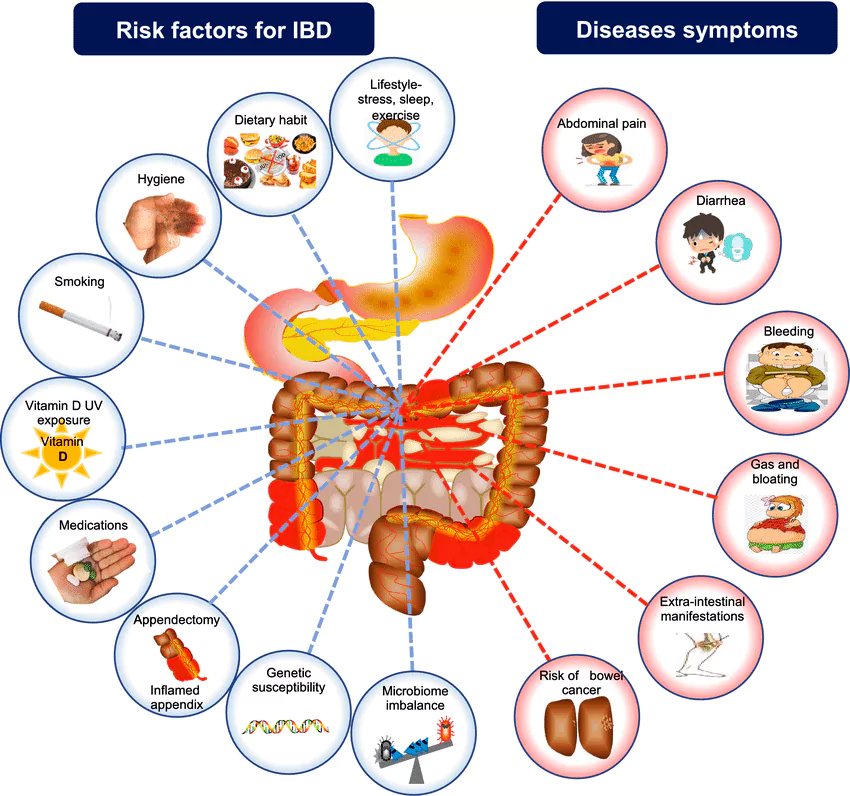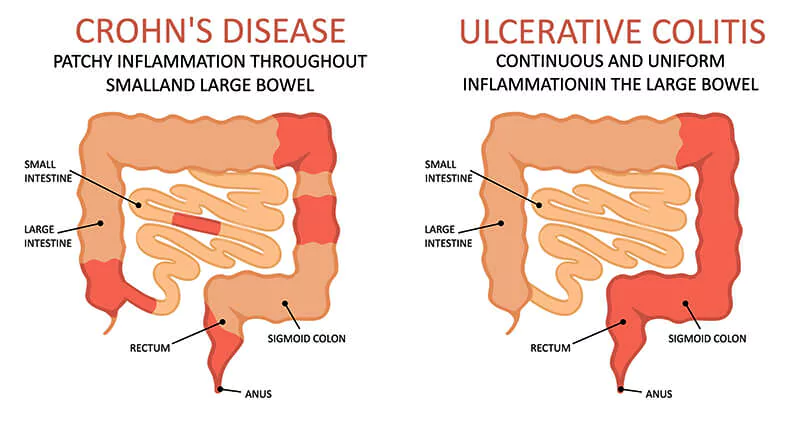A case of Inflammatory Bowel Disease (IBD) has emerged from a village in Andhra Pradesh.

- Age: IBD can develop at any age but usually appears before age 35.
About Inflammatory Bowel Disease (IBD)
Inflammatory Bowel Disease (IBD) is a chronic autoimmune condition
- In this disease, White blood cells mistakenly attack cells in the gut, causing ulcers in the mucosa.
- As a result a child with IBD may develop fever, loose stools and bloody diarrhea.
Effects on Nutrition and Health
- Nutrient Absorption: Impaired absorption of macro and micronutrients.
- Consequences: Weight loss, muscle mass reduction, anaemia, and vitamin deficiencies may occur.
Enroll now for UPSC Online Course
Types of Inflammatory Bowel Disease (IBD)

- Ulcerative Colitis: It affects only the large bowel.
- Crohn’s Disease: It can affect any part of the gut, from the mouth to the anus.
- Indeterminate Colitis: It is used when it is challenging to distinguish between ulcerative colitis and Crohn’s disease.
Factors Causing Inflammatory Bowel Disease (IBD)
- Family History and Genetics: Individuals are more likely to develop IBD if they have a parent, sibling, or child with the IBD condition.
- Smoking
- Crohn’s Disease: Smoking is a significant risk factor and worsens symptoms of Crohn’s disease.
- Ulcerative Colitis (UC): Nonsmokers and former smokers are more commonly affected by UC.
- Food: Adoption of Western food habits and lifestyle is closely associated with alterations in gut microbiota.
- IBD Predisposition: These changes in the gut microbiota increase the likelihood of developing IBD.
- Immune System
- Immune Response: The immune system, which normally defends against pathogens, may cause IBD.
- Inflammation: Bacterial or viral infections in the digestive tract can trigger an immune response, leading to inflammation as the body fights the infection.
![]() 31 May 2024
31 May 2024


